Like the biblical Naomi, Ethiopian-born Ruth Meakins lost both her husband and son. In an exclusive interview, Ruth shares her story with Tola-Doll Fisher, and continues to celebrate life with her two daughters
A few months ago, I went to my first Christian festival on a farm on the outskirts of the Cotswolds. I made a last-minute decision to attend and so went on my own, driving uncertainly down the rugged path to the site and narrowly avoiding an unconcerned labrador, clearly used to hordes of Londoners with no understanding of countryside etiquette, trotting towards me. Over the next 24 hours I was embraced in Bible studies, music, prayer and hugs as the much-loved Shift community continued the legacy of late co-founder Caleb Meakins to gather believers in their 20s and 30s: “to put their faith in Jesus and shape society, whatever their sphere of influence”.
Caleb Meakins, a devoted Christian, Ethiopian-born British entrepreneur, speaker and YouTube personality died in hospital in 2020, after a car crash. Twenty-four years earlier, when Caleb was seven, his father was killed in a crash after the plane he was in was hijacked.
In the final session at Shift I thanked the organisers, including Caleb’s two younger sisters, Lydia and Abigail, for bringing such beauty from ashes, and both honoured their mother, seated proudly and serenely at the front, bearing a T-shirt printed with a photograph of her beloved son. I left later that evening sensing I’d been filled afresh with the presence of the Holy Spirit, and with a pressing feeling that I needed to speak with this incredible woman of faith and resilience, Ruth Meakins.
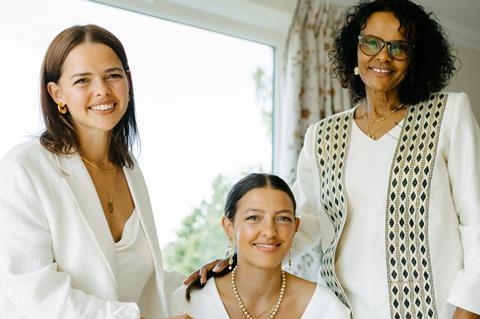
Tola-Doll Fisher (TDF): Ruth, your early life was marked by loss and upheaval. Can you take us back to the start of your story?
Ruth Meakins (RM): My childhood was never simple. My parents divorced when I was young, and my father – who came from the north of Ethiopia – took me away from my mother without her consent. He remarried, and his new wife didn’t want me around. I was just a little girl, maybe three, and I remember being mistreated by my stepmother. My father, like many men of his generation, believed his role was only to provide food, not to protect or nurture. My younger half-brother, a boy, was spoiled by my father; in Ethiopia, the first child is expected to be a boy, and as a girl, I was often left out.
Eventually, a woman in our city – who would become my adopted mother – saw what was happening. She was a wealthy, childless woman who had adopted many children. She begged my father to let her take me in. After much pleading, he finally agreed. I grew up believing she was my real mother because of the way she loved me. I later learned that my biological mother had tried to find me, but she never succeeded. However, my adopted mother gave me all the love and security I needed.
TDF: Did you maintain any relationship with your father?
RM: He was present, in a way. He paid for me to go to boarding school in Addis Ababa when I was twelve, but he never visited. Most of the children there came from broken homes. That experience made it hard for me to see God as a loving father. In my mind, a father was someone who was distant, unprotective, even cold.
TDF: How did faith fit into your early years?
RM: I was raised in the Ethiopian Orthodox Church. My adopted mother took me to church every Sunday, but the services were traditional. There was a lot of emphasis on saints and angels, and the Bible was something only priests read. I had a Bible under my bed for protection, but I never read it. At boarding school, Bible lessons were compulsory, but I struggled to connect with God as a father figure because of my own experiences.
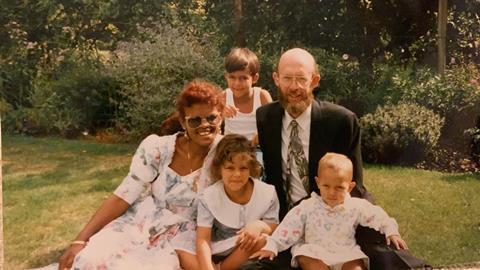
TDF: When did your personal journey with faith really begin?
RM: It began at 14, when I went to a charismatic church for the first time. The preacher said something I’d never heard before: “Our heavenly Father is not like our earthly fathers. He wants intimacy. He wants to really know you.” That was a revelation to me. I’d never even sat on my father’s lap, never felt that closeness. But that message opened up a new way of seeing God. I started to trust him, bit by bit.
TDF: And how did you meet your husband?
RM: I was about 17 when I first met my husband, Andy. My boarding school was in Addis Ababa, and I had a summer job just outside the capital, working for a British engineering company’s irrigation project. I went to the local Pentecostal church there and on the first Sunday I attended, Andy noticed me because it was a conservative church with dress code, but I wore trousers and did not cover my hair!
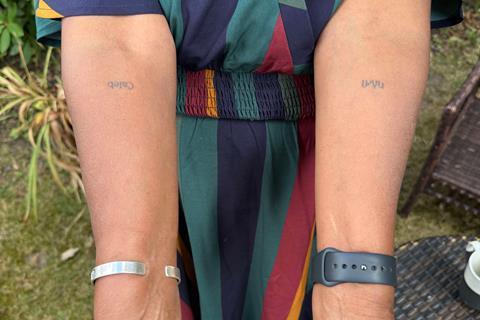
TDF: How did your relationship with Andy develop?
RM: He was a British missionary, working in Ethiopia. We became friends and studied the Bible together. He was patient; never pushed me. In Ethiopia, if a man proposes and the woman says no, that’s usually the end. But Andy waited, prayed and kept coming back. After years of friendship, prayer and encouragement from friends and family, I finally said yes. His kindness, patience and love won me over.
TDF: Was it difficult marrying a foreigner, both for you and your family?
RM: Yes, very. My father refused to come to our wedding. He couldn’t understand why I’d marry a white man. Andy was always respectful – he even thanked my father for ‘giving me’ to him, though my father had little to do with it. My adopted mother embraced Andy and even became a Christian herself, which was a great blessing. After we married, we split our time between Ethiopia and England, and had three children: Caleb, Lydia and Abigail.
My father couldn’t understand why I’d marry a white man
TDF: What challenges did you face as a mixed-race family in Ethiopia?
RM: We faced a lot of judgement and hostility. People assumed I was with Andy for his money and called me a prostitute. When we had children, people thought I was their nanny. It was hard, but it also opened my eyes to the judgement I carried towards others. God began to challenge me, especially about women working on the streets. He called me to love and serve them, rather than judge.
TDF: How did you begin working with vulnerable women?
RM: It started with simple outreach – taking food and tea to women on the streets, listening to their stories, praying with them. Eventually, we started vocational training, teaching sewing, cooking and other skills. We always included Bible study and support. Some of the women went on to open businesses, and their children went on to university and good jobs. We registered the project as Women at Risk, and it continues to this day.
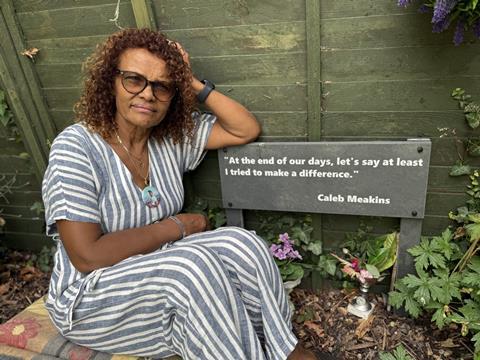
TDF: You lost Andy in a plane crash. What happened, and how did you survive that grief?
RM: Andy was travelling for work when his plane was hijacked and crashed into the sea. For 15 days, we didn’t know what had happened. When his body was finally returned, I clung to Jeremiah 29:11: “For I know the plans I have for you.” It was agony, but God provided for us in miraculous ways. Friends would leave envelopes with the exact money we needed. School fees were paid. God was truly a father to the fatherless.
If I tried to carry all the pain and trauma, I wouldn’t be able to walk
TDF: How did your children respond to such loss and upheaval?
RM: Each child grieved differently. Caleb asked me where we would get the money to pay school fees and I said, ‘Daddy is not here, but Jesus is here.’ I taught all my children to trust him. Moving to England was difficult – no close family, no support. I threw myself into volunteering with homeless people and refugees, and eventually trained as a teacher so I could be there for my children during school holidays.
TDF: You later experienced another devastating loss – Caleb. Can you tell us what happened?
RM: Caleb was in a car accident in Ethiopia. He had arrived at the airport to catch a flight to London that evening. However, when he arrived he realised he had forgotten his phone at home (a 15 minute drive away). It was on the drive back, 10 minutes from the family apartment, that the taxi crashed. There were multiple failures from the healthcare system and a week later he died in hospital. That week in hospital was like nothing we had ever experienced. Crowds of family and friends flooded the hospital to pray and worship. We all had faith that God would heal him and the most remarkable testimony would come from this. It was the most devastating shock when we were told he wasn’t going to make it and it was time to turn off the machines.
The taxi driver was arrested immediately after the crash, as is the law. I refused to press charges and requested he be released. After he was released he came to visit me and during a very emotional conversation, I told him that I held nothing against him and told him he needed to forgive himself. I told him: “My son is with his Maker. You need to know where you will go.” Forgiveness was essential – not just for his sake, but for my own healing.
TDF: Where do you find the strength to keep going, to keep forgiving?
RM: Only in God’s grace. If I tried to carry all the pain and trauma, I wouldn’t be able to walk. I let God carry what I cannot. Forgiveness is not about forgetting or excusing what happened. It’s about releasing that person to God so you can move forward. If you don’t forgive, you carry that person with you everywhere. It’s not easy, but it’s necessary for your own freedom. I don’t always understand it, but I trust that God is faithful. Even in my darkest moments, he has provided for me – sometimes in small, practical ways, sometimes with deep comfort. My story is painful, but it’s also full of God’s redemption.
TDF: Looking forward, what gives you hope?
RM: My hope is in God’s faithfulness and the legacy of love left by Andy and Caleb. I see how God has used my pain to help others, especially women and children who have lost so much. I want to continue to serve, to love and to forgive. After my son died, a family member told me they would understand if I no longer believed in God, but I believe even more now because I know I will see both Caleb and Andy again.
Ruth Meakins is an Ethiopian-born British mother and community leader. She is the mother of the late Caleb Meakins, who was an entrepreneur, speaker and YouTube content creator. Caleb co-founded Shift (shift-uk.com), a UK-based organisation that brings together young adults to explore faith and its impact on society. Ruth continues to support community initiatives and share her experiences in cross-cultural and faith-based work. The Caleb Andrew Meakins Foundation has been set up in honour of Caleb and his father Andrew: meakinsfoundation.org
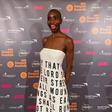










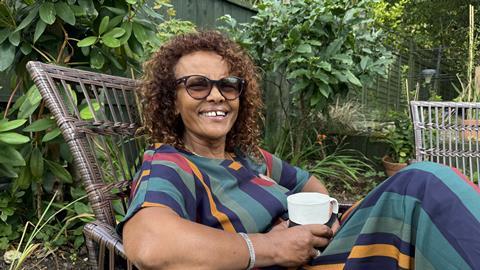

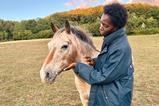



















No comments yet